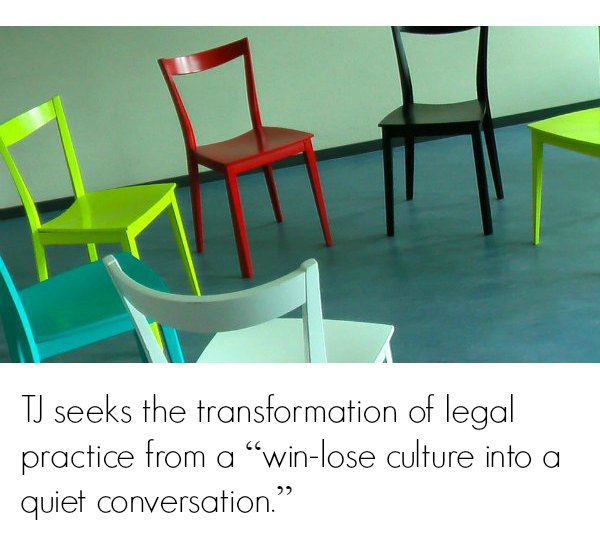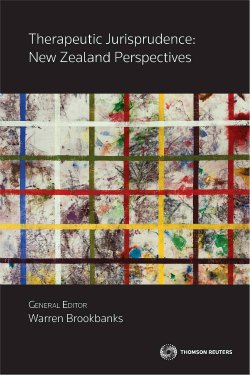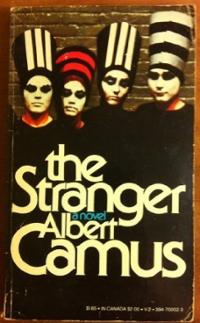Understanding therapeutic jurisprudence
Therapeutic jurisprudence (TJ) derives from the early work of two North American law professors (Professors David Wexler and Bruce Winick) who were concerned to explore the intersection between the law and the mental health system. A mutual interest grew to become a shared approach to examining how the law itself acts as a therapeutic (or anti-therapeutic) agent.
In the last 25 years TJ has grown exponentially to become a mental health perspective on the law in general. It has been embraced across a broad range of legal practice areas as a means of evaluating the connection between legal arrangements and therapeutic outcomes. It has led to a new field of interdisciplinary work. In this regard TJ searches out developments in the clinical behavioural sciences and imagines ways in which that knowledge can be applied in legal domains.
 As a novel approach to legal problem-solving, TJ reaches out to explore models of practice that are more relationally engaged and generally less adversarial. In a very real sense TJ seeks the transformation of legal practice from a “win-lose culture into a quiet conversation.” (C Menkel-Meadow, ‘Portia in a Different Voice: Speculations on a Woman’s Lawyering Process’ (1985) 1(1) Berkeley Women’s Law Journal 39, 57).
As a novel approach to legal problem-solving, TJ reaches out to explore models of practice that are more relationally engaged and generally less adversarial. In a very real sense TJ seeks the transformation of legal practice from a “win-lose culture into a quiet conversation.” (C Menkel-Meadow, ‘Portia in a Different Voice: Speculations on a Woman’s Lawyering Process’ (1985) 1(1) Berkeley Women’s Law Journal 39, 57).
While TJ has been criticized as an example of the discretionary ‘vague’ element of law, (see H Sommerlad, “The Ethics of relational Jurisprudence” (2014) 17(2) Legal Ethics 281, 296), its strength lies in its ability to offer perspectives capable of transforming worn and tired legal structures to make them more ‘fit for purpose’ in dealing with the multi-faceted and complex socio-legal issues that challenge modern Western societies.
Therapeutic jurisprudence as a lens
Much of the focus in recent writing on TJ has concerned endeavours to align TJ principles with the values and operating philosophies of courts of general jurisdiction - a process referred to as ‘mainstreaming’. The idea is that TJ becomes a lens through which systems can be evaluated and improvements made to the effectiveness of the criminal justice system and other domains of law. For example in an article that appeared recently in the Akron Law Review, entitled “Plea Bargaining as Dialogue” (2016) 49(1) Akron Law Review 63, the writer, Rinat Kitai-Sangero explores how Meursault, the protagonist in the 1942 novella The Stranger, by Albert Camus, might be seen as a model for those offenders who feel excluded from the criminal justice process exemplified in a criminal trial. The writer argues that plea bargaining, an essential component in the American administration of justice, should be converted into a ‘dialogical process’, thus leading to a reduction in a defendant’s sense of alienation during the criminal process. One could envisage how a similar approach might be taken to procedures arising from New Zealand’s Criminal Procedure Act 2011, including settlement conferences and disputed facts hearings.
Therapeutic jurisprudence as a tool for the common good
 As a further, perhaps more visionary example of how mainstreaming might work, Carol Zeiner has made a case for using TJ principles to examine the therapeutic or anti-therapeutic impact of laws and legal processes on government, as opposed to its typical focus on human wellbeing (See Carol L Zeiner, “Should Therapeutic Jurisprudence be used to Analyze Impacts of Legal Processes on Government?” (2016) 28 St Thomas Law Review (forthcoming). Zeiner’s essential argument is that TJ analysis should be used to identify ‘TJ-like impacts’ on government on the basis that such analysis provides additional insights into the therapeutic and anti-therapeutic impacts of the law on the humans involved. This approach is consistent with my argument that TJ is a useful tool for exploring the notion of the common good and how that can be preserved or advanced within a social context of compounding legalism and over-regulation (See W Brookbanks, “Introduction”, in W Brookbanks (ed), Therapeutic Jurisprudence: New Zealand Perspectives (Thomson Reuters, Wellington, 2015) at 10). The point is that legal processes are what they are. They are ostensibly value-neutral and can produce favourable or unfavourable results. TJ offers a perspective which has as one of its goals “protecting the dignity and value of the individual human being as an objective of legal analysis and law reform.” (Zeiner, above, at 20).
As a further, perhaps more visionary example of how mainstreaming might work, Carol Zeiner has made a case for using TJ principles to examine the therapeutic or anti-therapeutic impact of laws and legal processes on government, as opposed to its typical focus on human wellbeing (See Carol L Zeiner, “Should Therapeutic Jurisprudence be used to Analyze Impacts of Legal Processes on Government?” (2016) 28 St Thomas Law Review (forthcoming). Zeiner’s essential argument is that TJ analysis should be used to identify ‘TJ-like impacts’ on government on the basis that such analysis provides additional insights into the therapeutic and anti-therapeutic impacts of the law on the humans involved. This approach is consistent with my argument that TJ is a useful tool for exploring the notion of the common good and how that can be preserved or advanced within a social context of compounding legalism and over-regulation (See W Brookbanks, “Introduction”, in W Brookbanks (ed), Therapeutic Jurisprudence: New Zealand Perspectives (Thomson Reuters, Wellington, 2015) at 10). The point is that legal processes are what they are. They are ostensibly value-neutral and can produce favourable or unfavourable results. TJ offers a perspective which has as one of its goals “protecting the dignity and value of the individual human being as an objective of legal analysis and law reform.” (Zeiner, above, at 20).
Examples of TJ in practice
In a recent posting on the blog Therapeutic Jurisprudence in the Mainstream entitled “Could a therapeutic jurisprudence themed conference be used in your area of law or your local community to improve your legal system”, the guest blogger, Professor Bernie Perlmutter, discussed how a local community in Miami-Dade used a TJ approach to improve their frontline practice aimed at improving outcomes for children in the state foster care system. Through the medium of a one-day regional conference frontline child welfare professionals, stakeholders and foster parents, together with academic collaborators, were able to ‘re-envision’ child welfare practice using TJ principles. An outcome of the conference was that students from the local Schools of Law and Nursing were invited by one of the judges participating in the conference to attend and observe his court with a view to giving feedback on how it might be improved along TJ lines. This resulted in a collaboration between the Miami Community Based Care Alliance and the Nursing School to write a report which recommends novel ways of approaching the child welfare court in a ‘problem-solving, holistic and conflict resolution mode’. The aim is to resolve family conflicts more humanely while endeavouring to minimize harm to litigants and other participants.
Growing interest in New Zealand
Hopefully this (TJ) will act as a foil to the worst corrosive effects of adversarial justice.
These initiatives demonstrate the significant potential ‘pulling power’ that TJ has as a model for law reform. The Fourth International Conference on Therapeutic Jurisprudence, held at Auckland University on 3-4 September 2015 is a further example of the growing interest in this topic in New Zealand. Described by one of the international keynote speakers as ‘one of the very best conferences I have attended in my career’, the Conference succeeded in showcasing the remarkable success of the Alcohol and other Drug Treatment Courts now operating in New Zealand as part of a five year pilot. Observing the two Auckland region Drug Courts two other specialist courts over an 8 day period, New York Law Professor Michael Perlin, noted that these examples of ‘therapeutic jurisprudence in action’ were ‘spectacular’. As Perlin observes:
“They knew every aspect of the case. They consulted with the court coordinating teams, defendants’ lawyers, police prosecutors, family members, advocates and others in thoughtful, integrative ways that left me agape.”
While New Zealand has been a relative latecomer to the international therapeutic jurisprudence forum, its grasp and adoption of this new approach has been enthusiastic and enduring. There is little doubt that therapeutic jurisprudence is now part of the legal lexicon, and destined for a more active role across a range of legal domains. Its simple ambition to reduce the impact of, and need for, adversarialism in the courtroom, and its focus on rehabilitation and restoration rather than punishment in all domains of the law, are values that increasing numbers of litigants and others caught up in legal processes can relate to.
We can expect that in the coming months and years increasing numbers of judges, legal practitioners, academics, policy–makers and lay people will come to see the value of this non-adversarial approach to legal problem-solving and seek to apply truly therapeutic models of justice. Hopefully this will act as a foil to the worst corrosive effects of adversarial justice.
More information
 The article author, Warren Brookbanks, is the General Editor of the book "Therapeutic Jurisprudence: New Zealand Perspectives". He has an international reputation in the fields of criminal law, mental health law and therapeutic jurisprudence. In 2014 he was awarded a Doctor of Laws (LLD) degree from the Auckland Law School.
The article author, Warren Brookbanks, is the General Editor of the book "Therapeutic Jurisprudence: New Zealand Perspectives". He has an international reputation in the fields of criminal law, mental health law and therapeutic jurisprudence. In 2014 he was awarded a Doctor of Laws (LLD) degree from the Auckland Law School.
